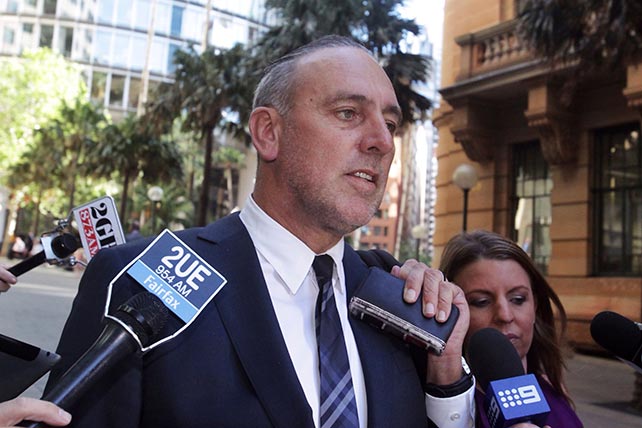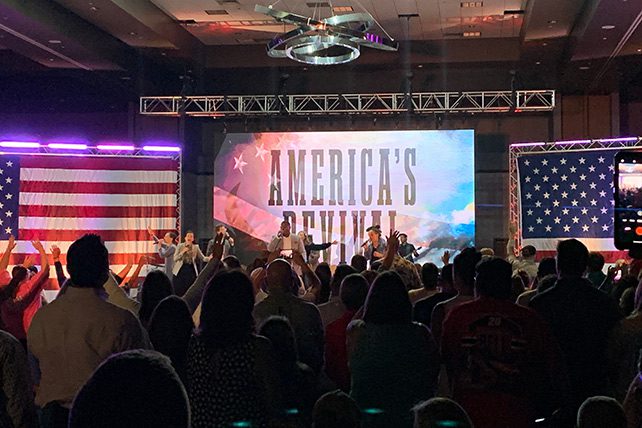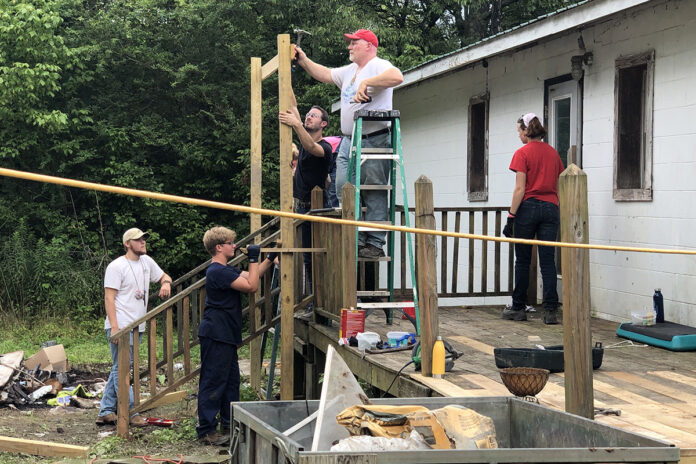Personal pronouns have been all the rage (and debate) in recent years. It’s amazing how important such short words are in our everyday speech and in our anthropology. That being said, personal pronouns are also some of the most important words to interpret when reading the Scriptures. One of my professors in seminary challenged the students to pay attention to pronouns, e.g., singular and plural; ‘I,’ ‘you;’ ‘we,’ ‘he, she, it,’ ‘they,’) Give careful consideration to what pronouns are being used in the text of Scripture. To pay attention to pronouns will help the reader better understanding the meaning of any given passage. Personal pronouns guide the interpretation of a passage, they inform us of the individual and communal nature of the Christian life, and they aid the minister in the preaching of God’s word. However, it is not always easy to discern the last two of these.
Pronouns in the Bible
It is not always clear in the English whether a biblical personal pronoun is singular or plural. We have to work with the text in the original languages. For instance, in the Greek version of Luke 22:31, the first “you” is plural (i.e., “Satan has asked for ‘you [all]'”), the second is singular (i.e., I have prayed for you, Peter). The English translations of Scripture fail to capture this.
Both personal pronouns and the voice of a verb play a significant role in understanding the individual and the corporate nature of the Christianity. We see this in the Savior’s addresses to the seven churches in Asia Minor (Rev. 2–3). In Revelation 2:2, Jesus addressed the members of the church collectively with the second person plural pronoun “your.” By so doing, He is acknowledging the collective nature of the people of God in a local church. The members of a particular church are subject to the collective criticism and commendation of the Savior. However, at the end of each letter, Jesus addresses individuals with the first-person plural aorist word ἀκουσάτω (i.e., the one who hears). By so doing, Jesus is calling individuals to respond personally to what He has said.
This paves the way for the consideration of what pronouns should be used in preaching. There has been no small debate over the past century and a half about this matter. The nineteenth century Anglican theologian, J.C. Ryle, in his little book, Simplicity in Preaching, made the following observation about why he believed that the use of the second person singular or plural pronoun “you” is a better option than the second person plural use of “we.” He wrote,
“Many people, I am sure, do not understand what the preacher’s ‘we’ means. The expression leaves them in a kind of fog. If you say, ‘I, the pastor of the parish, come here to talk of something that concerns your soul, something you should believe, something you should do’—you are at any rate understood. But if you begin to talk in the vague plural number of what ‘we’ ought to do, many of your hearers do not know what you are driving at, and whether you are speaking to yourself or them. I charge and entreat my younger brethren in the ministry not to forget this point. Do try to be as direct as possible. Never mind what people say of you. In this particular do not imitate Chalmers, or Melville, or certain other living pulpit celebrities. Never say ‘we’ when you mean ‘I.’ The more you get into the habit of talking plainly to the people, in the first person singular, as old Bishop Latimer did—the simpler will your sermon be, and the more easily understood. The glory of Whitefield’s sermons is their directness. But unhappily they were so badly reported, that we cannot now appreciate them.”1
In more recent years, the biblical counsellor, Jay Adams, also taught that the second person singular “you” ought to be the primary pronoun a minister uses in preaching. He wrote,
“Two words ought to dominate preaching: ‘God’ and ‘you.’
The preacher must make sure that his congregation understands that he is bringing a message from God to each one of them. And therefore, most frequently, his use of the second person should be the use of the second person singular (“you” as an individual). How he preaches will make that clear. He will often say such things as, ‘God calls each one of you to do this’ and ‘Now, don’t think of the person sitting next to you when you hear what God has to say in this passage. This is God’s message to you.’ In other words, he will preach confrontationally.”2
That being said, there is a case to be made for the use of both “you” and “we,” when preaching.
When the Apostle Paul addressed the subject of human depravity in Ephesians 2, he did so first by the use of the second person pronoun “you” in Ephesians 2:1–2). Then he switched to “we” and “us” in Ephesians 2:3–7, in order to press home the universality of human depravity and the common salvation believers have in Christ. Finally, he moved between “you” and “we” in Ephesians 2:8–10. Although this is not functionally a sermon, it is clear apostolic teaching.
Notably, John Calvin preferred the second person plural personal pronoun “we” in his preaching. T.H.L. Parker explained what he believed to be Calvin’s rationale, when he wrote,
“The preacher must show by his life that he also is obedient to the Word he preaches; his life must ratify his doctrine. In fact, the first obedience must come from himself, for he has no right to command the people anything which he is, at the least, not trying to obey himself. Calvin shows by his continual use of the pronoun ‘we’ in his sermons that his words are addressed as much to himself as to the congregation. Woe to the preacher if he does not set an example of holy obedience and reverence towards the Word of God that he proclaims. ‘It were better,’ Calvin declares passionately, ‘for him to break his neck going up into the pulpit, if he does not take pains to be the first to follow God.’”
There is great merit in this sort of approach. The use of the second person plural pronoun puts the minister in the same need as those to whom he is preaching. It keeps him from being exalted over the congregation. It tells the people of God that what God is saying in His word is directed to him every bit as much as it is to them.
Perhaps the best way forward for ministers of the gospel to pay attention to pronouns is to diversify in their use of “we” and “you.” I sometimes include myself when preaching about depravity or my need for the salvation that is only offered in Christ. At other times, I use the second person singular pronoun “you” in order to help congregants search their own hearts regarding what they have heard from God’s word. Still, at other times, I may say “you and me” in order to both distinguish and to express solidarity. It takes wisdom to know when to utilize various pronouns in preaching.
Regardless of one’s conclusion about these matters, it is incumbent on all of us to pay attention to pronouns in the scripture. They guide our interpretation of any given passage; they explain the collective and individual aspects of Christianity; and they serve as useful homiletical tools for the minister of the gospel to preach the word to himself and to the people of God. May the Lord deepen our understanding of how to pay attention to pronouns, and help us see the importance and usefulness of pronouns.
This article about how to pay attention to pronouns originally appeared as Preaching Preferred Pronouns, and is used by permission.
















